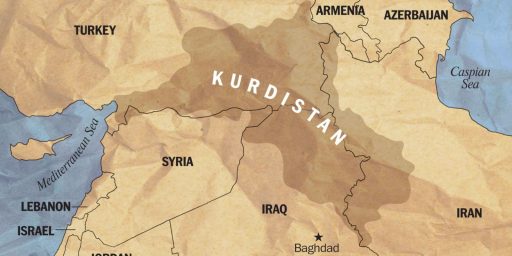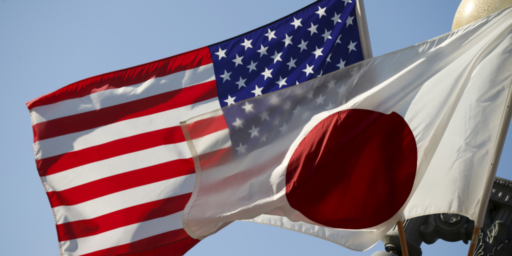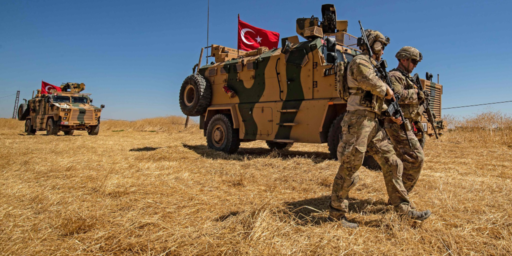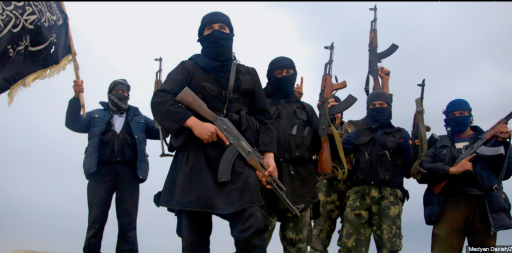DEMOCRATIZING IRAQ
Megan argues that Iraq’s lack of democratic tradition does not mean democracy can’t be established there. She offers 1945 Germany and Japan as exhibits A and B. She is correct. However, as I note in her comments section, it will be quite difficult: The advantages Germany and Japan had were many: An educated society, lots of experience with running a successful industrial economy, relatively homogeneous societies (and thus few reinforcing cleavages) and a large infusion of cash from the US.
Iraq has lots of money–the oil revenues will come gushing back in as soon as UN santions are lifted–and a relatively secular culture by Arab standards. But they also have the huge problem of competing Islamic cultures and the issue of Kurdish nationalism. I think it’s doable, but it’s going to take years of work. And it could collapse at any point if a man on horseback (camelback?) emerges as the result of one of the early elections before true democracy becomes institutionalized.





I completely agree with you.
Homogeneous societies definitely have advantages over heterogenous ones, however like you said it is possible. Since, in this caes, all of the different cultures pretty much went through the same horror it might help them as a nation to work together.
Before democracy must come the appreciation and experience with freedom. It took us more than a generation to do it in Japan and Germany. I think the job in Iraq is going to be more difficult.
More difficult because it’s surrounded by an Islamic world that fights against freedom and democratic values of tolerance and pluralism wherever it faces it. The US presence in Iraq will be much like Israel’s presence in the Middle East. It’ll take a generation of things going well with minimal and invisible American presence to pull it off. Otherwise the next strong-armed tyrant will take over.
Oh I am sure.
I don’t believe either that this will happen over night.
All current and functioning democracies took a very long time to get where they are right now.
Actually, both Germany and Japan DID have some limited experience with parliamentary government prior to their fascist interludes. Germany and Japan may be poor examples for Iraq. Rather, I suggest looking towards the former USSR and the Commonwealth it created — regional autonomy may be key to the Iraqi situation. Also, little reported and known, I belive the United Arab Emirates or Qatar — one of the two — took some small baby steps towards parliamentary government about a year or so ago.
John,
Yeah–“Jane” mentions that in her post (Japan and German), although points out is was extremely limited. Germany at least had a long history of pseudo-parliamentary government. The Japanese case was far more pseudo.
Egypt pretends to be a democracy, although there isn’t much to it. A few of the “progressive” Arab states have a smidge, for sure, at least as compared with Iraq.
“And it could collapse at any point if a man on horseback (camelback?) emerges as the result of one of the early elections before true democracy becomes institutionalized.”
That, of course, is where the educational process comes in.
We don’t call tomorrow for elections next week. We don’t install a pseudo-democratic government of exiles. We build from local autonomy, then provincial, then national, through to true independence. And we do this whilst simultaneously using revenues from oil exports (and, later, other things; Iraq should not rely on a single “cash crop”) to build the Iraqi infrastructure, so that the freely-elected president of the Federal Republic of Iraq presides over a nation at least as prosperous as 1960s Europe was.
—